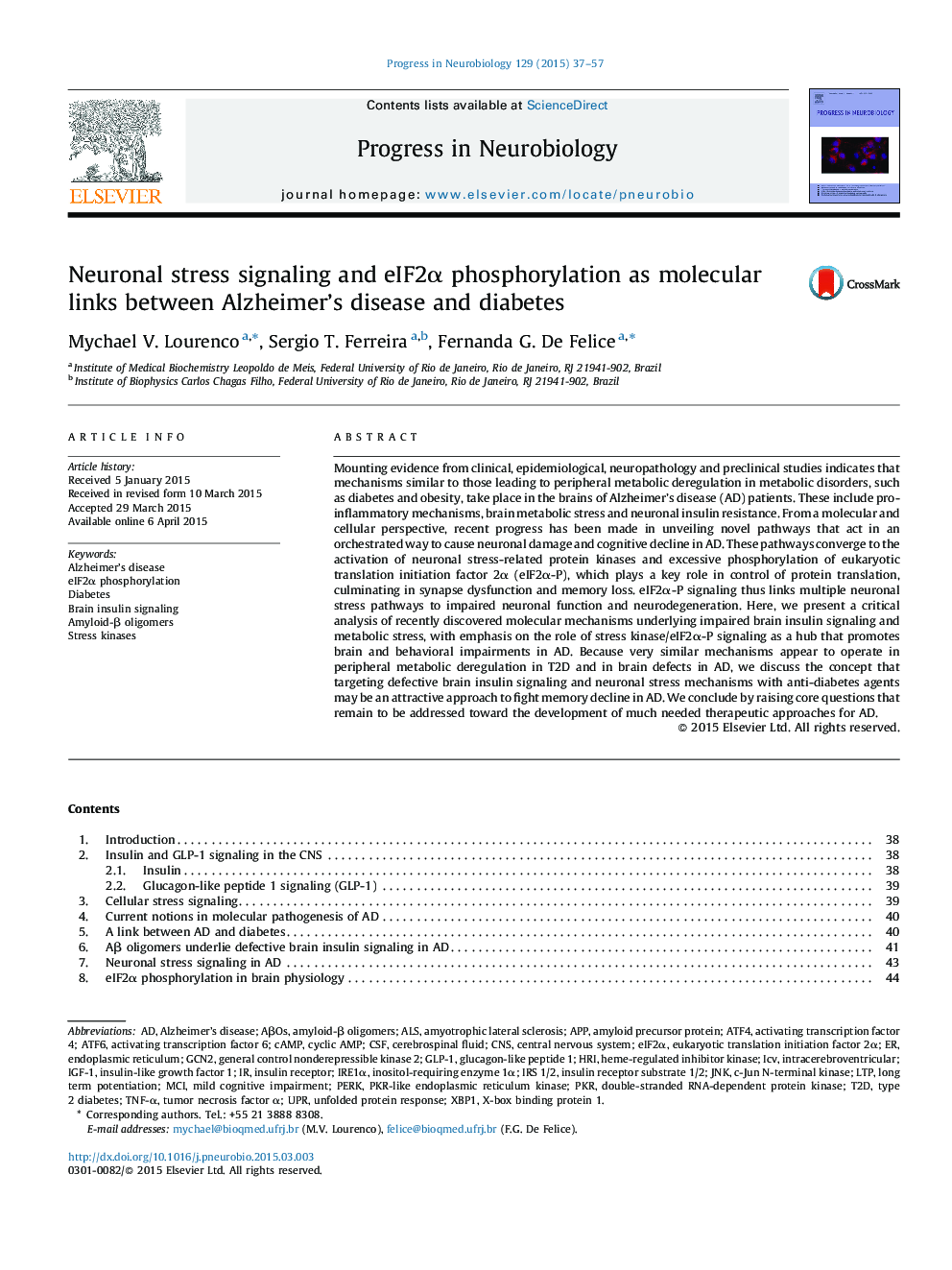| کد مقاله | کد نشریه | سال انتشار | مقاله انگلیسی | نسخه تمام متن |
|---|---|---|---|---|
| 4353291 | 1615382 | 2015 | 21 صفحه PDF | دانلود رایگان |

• AD brains develop impaired insulin signaling and diabetes-linked stress mechanisms.
• Proinflammatory signaling triggered by Aα oligomers underlies neuronal stress in AD.
• Brain eIF2α-P mediates synapse and memory loss in AD.
• Targeting neuronal stress and eIF2α-P might comprise effective therapeutics in AD.
Mounting evidence from clinical, epidemiological, neuropathology and preclinical studies indicates that mechanisms similar to those leading to peripheral metabolic deregulation in metabolic disorders, such as diabetes and obesity, take place in the brains of Alzheimer's disease (AD) patients. These include pro-inflammatory mechanisms, brain metabolic stress and neuronal insulin resistance. From a molecular and cellular perspective, recent progress has been made in unveiling novel pathways that act in an orchestrated way to cause neuronal damage and cognitive decline in AD. These pathways converge to the activation of neuronal stress-related protein kinases and excessive phosphorylation of eukaryotic translation initiation factor 2α (eIF2α-P), which plays a key role in control of protein translation, culminating in synapse dysfunction and memory loss. eIF2α-P signaling thus links multiple neuronal stress pathways to impaired neuronal function and neurodegeneration. Here, we present a critical analysis of recently discovered molecular mechanisms underlying impaired brain insulin signaling and metabolic stress, with emphasis on the role of stress kinase/eIF2α-P signaling as a hub that promotes brain and behavioral impairments in AD. Because very similar mechanisms appear to operate in peripheral metabolic deregulation in T2D and in brain defects in AD, we discuss the concept that targeting defective brain insulin signaling and neuronal stress mechanisms with anti-diabetes agents may be an attractive approach to fight memory decline in AD. We conclude by raising core questions that remain to be addressed toward the development of much needed therapeutic approaches for AD.
Journal: Progress in Neurobiology - Volume 129, June 2015, Pages 37–57